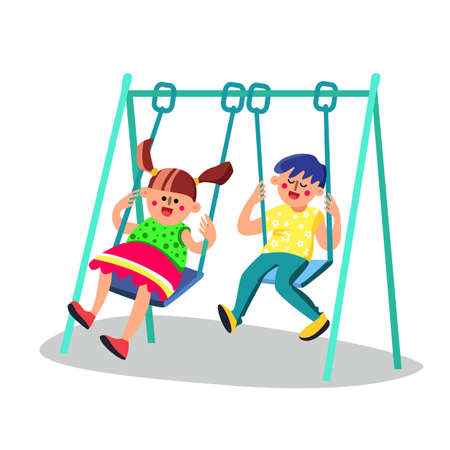Introduction: Why Getting Youngsters Into Angling Matters
In England, angling is far more than just a pastime—its woven into the fabric of our countryside and communities, forming a cherished tradition that stretches back centuries. Encouraging youngsters to pick up a rod is about much more than catching fish; its about safeguarding the future of this beloved sport, keeping cultural traditions alive, and fostering valuable life skills among the next generation. As experienced anglers know, introducing children and teenagers to fishing ensures that the knowledge, respect for nature, and camaraderie that define English angling will continue to thrive. Moreover, engaging young people in angling offers clear benefits for both individuals and local communities—from promoting well-being and environmental stewardship to nurturing social connections and even supporting rural economies. The table below outlines some of the key reasons why getting youngsters involved in angling matters so much in England today:
| Aspect | Importance for Youngsters | Benefits for Community |
|---|---|---|
| Cultural Tradition | Connects with heritage; passes on local knowledge | Keeps rural customs alive; strengthens community identity |
| Sport’s Future | Ensures new generations of skilled anglers | Sustains clubs, events, and waterways management |
| Personal Development | Teaches patience, responsibility, teamwork | Reduces anti-social behaviour; builds positive role models |
| Mental & Physical Health | Promotes outdoor activity and relaxation | Lowers stress across all age groups; fosters well-being |
| Environmental Awareness | Encourages respect for wildlife and conservation | Helps preserve local ecosystems for future generations |
By investing in junior angler programmes across England, we not only enrich the lives of young people but also ensure that our riversides remain lively hubs of learning, laughter, and lifelong friendships for years to come.
2. What Are Junior Angler Programmes?
Junior angler programmes in England are structured initiatives designed to introduce children and teenagers to the world of fishing in a safe, supportive, and enjoyable environment. These schemes are typically run by angling clubs, national organisations, or local community groups, each with its own approach but sharing common goals: fostering a lifelong love for angling, promoting environmental awareness, and encouraging social responsibility among young people.
Key Organisations Driving Junior Angling
| Organisation | Main Schemes | Main Aims |
|---|---|---|
| Angling Trust | Get Fishing for Juniors, Licensed Coaching Network | Introduce youngsters to angling, ensure safe practice, provide qualified coaching |
| The Canal & River Trust | Lets Fish! | Provide free introductory sessions, promote urban and rural waterway fishing |
| Local Angling Clubs | Youth Memberships, Junior Competitions | Encourage regular participation, build local community bonds, nurture talent |
| Tackle Shops & Retailers | Beginner Kits, Sponsored Events | Make entry affordable and accessible for families and schools |
Programme Structure and Approach
The structure of these junior initiatives often includes several core elements:
- Taster Days: One-off events offering children a chance to try fishing with all equipment provided.
- Progressive Courses: Multi-week courses teaching basic skills through to advanced techniques.
- Coaching & Mentoring: Sessions led by qualified coaches (often Angling Trust licensed), ensuring both fun and safety.
- Competitions & Social Events: Friendly matches and fun days to build camaraderie and healthy competition.
- Environmental Education: Lessons on aquatic life, conservation, and responsible angling practices.
Main Aims of Junior Angler Programmes in England
- Spark Interest Early: By making fishing accessible and fun, these programmes hope to develop lifelong enthusiasts.
- Create Inclusive Communities: Many schemes target underrepresented groups and work to break down barriers in the sport.
- Nurture Skills and Confidence: Participants gain practical abilities as well as self-assurance through achievement.
- Promote Wellbeing: Emphasis is placed on the benefits of outdoor activity for mental and physical health.
- Cultivate Conservationists: Young anglers are taught to respect the environment from day one.
A Snapshot of Programme Benefits
| Aspect | Description |
|---|---|
| Diversity of Offerings | Catering for all ages and abilities—from complete novices to budding competitors. |
| Sustainable Practice | Pioneering ‘catch-and-release’ ethos and habitat care from an early age. |
| Lifelong Impact | Youth involvement often leads to future club volunteers and stewards of the sport. |
By working collaboratively across clubs, charities, governing bodies, and businesses, junior angler programmes in England lay the groundwork for both personal growth among young people and the continued vitality of British angling traditions.

3. Life Skills Beyond the Rod: Building Confidence and Character
Junior angler programmes in England offer far more than just a lesson in casting lines or baiting hooks. These initiatives are a rich training ground for essential life skills that many youngsters find invaluable as they grow. The structured environment of these clubs encourages children to work together, learn from their mistakes, and develop a deep-seated respect for both themselves and the natural world around them.
Teamwork at the Water’s Edge
One of the most immediate benefits is the sense of camaraderie fostered among young anglers. Whether it’s sharing tips on tackle or helping each other land a catch, these experiences teach kids how to collaborate and support one another. In many cases, children who are shy or less confident find their voice and place within a group through shared success and problem-solving by the water.
Patience and Resilience: Lessons That Last
Fishing is not always about instant gratification. Hours spent waiting for a bite can test even the keenest youngster’s patience. Junior angler programmes turn this challenge into an opportunity to nurture resilience and perseverance—traits that serve well beyond angling. Overcoming disappointment after a slow day or learning from a lost catch helps youngsters develop a robust mindset that will benefit them in all walks of life.
Respect for Nature and Responsible Angling
Another cornerstone of these programmes is instilling environmental awareness. Youngsters are taught about local species, conservation efforts, and responsible fishing practices. This not only creates more ethical anglers but also lifelong advocates for Britain’s waterways.
Life Skills Developed Through Junior Angling
| Skill | Description | Real-life Application |
|---|---|---|
| Teamwork | Working with peers towards common goals | Collaboration at school or work |
| Patience | Waiting calmly for results | Coping with delays or setbacks in life |
| Resilience | Bouncing back from disappointment | Handling challenges with confidence |
| Respect for Nature | Caring for wildlife and habitats | Sustainable living habits |
A Foundation for Future Success
The true measure of junior angler programmes goes well beyond fishing records. By nurturing teamwork, patience, resilience, and respect for nature, these initiatives equip young people with skills that last a lifetime—both on and off the bank.
4. Conservation and Connection: Teaching Environmental Stewardship
One of the standout features of junior angler programmes in England is their focus on environmental education. These initiatives go far beyond simply teaching youngsters how to cast a line—they immerse children in the world of local waterways, instilling a deep sense of care for the environment from an early age. Through practical, hands-on experiences, young anglers learn about the vital importance of maintaining clean rivers, lakes, and ponds across England’s diverse habitats.
Learning About Local Waterways
Many junior angling clubs partner with local environmental organisations and fisheries experts to deliver interactive sessions. Youngsters are introduced to the unique species found in their local areas, including native fish, insects, birds, and plant life. This approach helps them understand how interconnected these habitats are and why every element plays a crucial role in supporting healthy ecosystems.
Key Conservation Lessons Taught
| Topic | Description | Real-World Example |
|---|---|---|
| Water Quality Monitoring | Children learn how to assess the health of streams and lakes using simple tests. | Testing pH levels and spotting pollution sources on the River Thames. |
| Wildlife Identification | Young anglers are taught to identify local fish species and other wildlife. | Spotting kingfishers or identifying brown trout at a community fishing day in Yorkshire. |
| Responsible Fishing Practices | The importance of catch-and-release and respecting closed seasons is emphasised. | Releasing juvenile perch safely during a summer session in Kent. |
| Litter Picking & Riverbank Care | Programmes often include organised clean-up events along waterways. | Clearing plastic waste from canal towpaths in Birmingham as part of a club activity. |
Fostering Responsibility for England’s Habitats
The direct involvement with conservation work gives youngsters a personal stake in protecting their environment. Many report feeling proud after seeing the difference they can make—whether that’s through removing rubbish, improving habitats for spawning fish, or educating friends and family about local wildlife. Such experiences foster not only lifelong respect for nature but also a sense of belonging within their communities. These values carry forward into adulthood, helping to ensure that England’s waterways remain vibrant and healthy for generations to come.
5. Community Spirit: Fostering Inclusion and Bridging Generations
One of the most cherished aspects of junior angler programmes in England is their powerful ability to unite communities and foster a genuine sense of belonging. Angling, often perceived as a solitary pursuit, in fact thrives on shared experiences by the water’s edge. These programmes are structured to bring together youngsters from diverse backgrounds, creating an inclusive environment where everyone feels welcome.
Bridging the Gap Between Youngsters and Seasoned Anglers
Junior angler initiatives intentionally pair young people with experienced local anglers. This not only helps pass down practical fishing skills but also builds bridges between generations, reinforcing values such as respect, patience, and environmental stewardship. The role of the older angler as a mentor cannot be understated—they become trusted guides, offering both technical tips and life lessons that extend far beyond fishing itself.
The Social Impact of Community Angling Events
Many clubs organise regular social events, matches, and family days where children, parents, and seasoned anglers come together. These gatherings break down barriers and encourage intergenerational dialogue. It’s not uncommon for lifelong friendships to form on the banks of rivers or lakes, turning what starts as a hobby into a true community affair.
Benefits of Inclusion and Mentorship in Junior Angling Programmes
| Aspect | Benefit for Youngsters | Benefit for Communities |
|---|---|---|
| Social Inclusion | Reduces isolation; encourages new friendships | Cultivates a welcoming atmosphere for all backgrounds |
| Mentorship | Receives guidance from experienced anglers; learns life skills | Keeps traditions alive; fosters responsibility among adults |
| Intergenerational Bonding | Builds respect for elders; gains historical knowledge | Strengthens community ties; preserves heritage |
This focus on community spirit ensures that junior angler programmes are about much more than just catching fish—they’re about building character, promoting inclusion, and weaving the fabric of local society tighter through every shared cast and conversation by the water.
6. Making it Accessible: Support, Funding and Partnerships
For junior angler programmes in England to truly thrive and attract youngsters from all backgrounds, accessibility is key. This doesn’t just mean finding a convenient fishing spot—it’s about ensuring young people have the support, funding, and opportunities needed to get started and stay involved. In this section, we’ll break down the essential resources, explore available funding avenues, and highlight how local partnerships can make all the difference.
Essential Resources for Young Anglers
The basics are non-negotiable: rods, reels, bait, permits, and safe venues. Many clubs and organisations now offer loan equipment or starter kits to newcomers, breaking down one of the main barriers for families who may not be able to afford initial costs. Experienced mentors—often passionate anglers themselves—are crucial for guidance and encouragement, providing hands-on tuition that books and videos simply can’t match.
Funding Opportunities
Securing financial backing is often the linchpin for programme sustainability. Clubs across England tap into a variety of sources to keep fees low or even eliminate them entirely for juniors. Below is a quick overview of common funding routes:
| Funding Source | Description | Example |
|---|---|---|
| Angling Trust Grants | Targeted grants to support youth initiatives | Building new pegs or buying tackle |
| Local Authority Schemes | Council-run sports grants for community projects | Covering coaching qualifications or venue hire |
| Sponsorships | Partnerships with local businesses or tackle shops | Free gear or event sponsorship |
| Lottery Funding (Sport England) | Major grants for grassroots sport development | Developing inclusive fishing sessions |
The Power of Partnerships
No club is an island. Collaborating with schools, scout groups, environmental charities, and local authorities allows programmes to reach more youngsters and offer a richer experience. For example, linking up with wildlife trusts can add an environmental education element to angling days out, while working with schools ensures activities align with curriculum goals such as outdoor learning and wellbeing.
Examples of Effective Partnerships
- School & Club Collaboration: Regular after-school fishing clubs run on school grounds or at local waters
- Tackle Shops & Clubs: Shops provide discounted kit bundles for beginners and sponsor competitions
- Community Organisations: Youth centres promote angling sessions as part of summer holiday schemes
Tackling Barriers Together
Ultimately, making junior angler programmes accessible in England depends on pooling resources and expertise. By securing funding, sharing equipment, nurturing local partnerships, and offering tailored support, clubs can ensure that every child—regardless of background—has the chance to experience the joys of angling.
7. Casting to the Future: The Lasting Impact of Getting Youngsters Hooked
As we reel in our reflections on junior angler programmes across England, it’s clear that the impact stretches far beyond simply teaching a youngster how to cast a line or land their first perch. Investing in these initiatives isn’t just about growing the next generation of anglers—it’s about shaping well-rounded individuals, strengthening communities, and nurturing respect for our natural waterscapes.
Personal Growth and Wellbeing
Junior angler programmes deliver more than fishing skills. They foster patience, build confidence through achievement, and encourage resilience when things don’t go to plan. These are lessons that last a lifetime, equipping young people to tackle challenges both on and off the water. Let’s not forget the mental health benefits; regular engagement with nature and mindful activity can help reduce stress and anxiety—an increasingly vital consideration for today’s youth.
Social and Community Benefits
There’s something uniquely British about sharing a brew on the bank, swapping tales of ‘the one that got away’. Junior angling schemes provide safe, structured opportunities for youngsters to connect with peers and seasoned anglers alike. They create a sense of belonging and purpose, which is crucial for building community spirit. These programmes can even bridge generational gaps, as knowledge is passed down from experienced hands to eager learners.
The Wider Impact at a Glance
| Benefit Type | Description | Long-Term Outcome |
|---|---|---|
| Personal | Improved self-esteem, resilience, life skills | Confident, capable adults ready for future challenges |
| Social | Community engagement, teamwork, social responsibility | Cohesive communities with shared values and mutual support |
| Environmental | Respect for wildlife, conservation awareness, stewardship of local waters | Sustainable fisheries and healthier natural habitats for generations to come |
The Environmental Payoff
Perhaps one of the most significant legacies of junior angler programmes is their contribution to environmental stewardship. When young people understand the delicate balance of our rivers, lakes, and ponds—and experience firsthand the joy they offer—they’re more likely to become lifelong custodians of these spaces. This bodes well for the future of angling in England, as well as for broader conservation efforts.
The Ripple Effect: Why It Matters Now More Than Ever
With ever-increasing demands on young people’s time—from screens to schoolwork—the opportunity to engage with nature has never been more precious. By casting out now and investing in junior angler programmes, we’re not just preserving an age-old British pastime; we’re ensuring that future generations have the skills, values, and passion needed to care for our waterways. The rewards will ripple through families and communities long after the initial catch is landed—making every effort well worth it.


